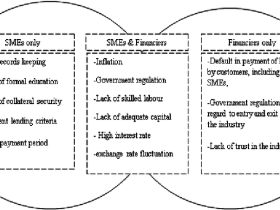Embarking on the journey of launching a startup is an exhilarating endeavor, but navigating the terrain of marketing with a limited budget poses unique challenges. In this comprehensive exploration, we’ll delve into key strategies for startups to effectively allocate their marketing budget, ensuring a balance between cost-effectiveness and impactful brand promotion.
Reference ; https://youtu.be/3fRvQEmLrOU
Understanding the Startup Marketing Landscape:
Launching a startup comes with the thrilling promise of innovation and success. However, in the vast sea of competitors, standing out requires strategic marketing. For startups, the challenge lies in optimizing a marketing budget to maximize impact. This article aims to guide entrepreneurs through the intricacies of effective budget allocation, fostering a path to sustainable growth.
Reference ; https://tinuiti.com/blog/ecommerce/online-marketing-budget/
Strategies for Effective Marketing Budget Allocation:
Reference; Startup Marketing on a Budget (10-4-23)
1. Define Clear Objectives:
At the outset, establish clear marketing objectives. Whether it’s increasing brand awareness, generating leads, or driving customer acquisition, having well-defined goals will serve as the compass for budget allocation decisions. Clarity here lays the foundation for a focused and purposeful marketing strategy.
2. Prioritize Digital Marketing:
In an era dominated by digital interactions, allocating a significant portion of your budget to online channels is not just a choice but a necessity. Invest in building a user-friendly website, implementing robust search engine optimization (SEO) strategies, and exploring targeted digital advertising. This approach ensures you reach your audience where they spend a significant portion of their time.
3. Investment in Content Marketing :
Content is the currency of the digital realm. Allocate funds for creating high-quality, relevant content that resonates with your target audience. Develop a content calendar encompassing blog posts, social media content, and engaging videos. This investment not only boosts your online presence but also establishes your startup as an authority in your industry.
4. Advertising on Social Media Platforms :
Leveraging the power of social media platforms is a cost-effective way to broaden your audience reach. Allocate a portion of your budget to targeted social media advertising on platforms like Facebook, Instagram, and LinkedIn. Tailor your content to each platform’s unique audience, optimizing your social media presence for maximum impact.
5. Email Marketing Efficiency:
Despite being one of the oldest forms of digital marketing, email marketing remains a stalwart strategy for startups. Allocate resources to build and maintain a subscriber list, and craft compelling email campaigns that provide genuine value to your audience. Personalization and segmentation are key here, ensuring your emails resonate with recipients.
6. Collaborating with Influencers.
Collaborating with influencers in your industry can exponentially amplify your reach and credibility. Allocate a portion of your budget for influencer collaborations, ensuring the influencers align with your brand values and target audience. This form of marketing can provide an authentic and relatable connection with potential customers.
7. SEO Optimization:
Investing in SEO is a long-term strategy that pays dividends. Allocate funds for comprehensive keyword research, on-page optimization, and link-building strategies. While the results may not be immediate, the enduring benefits of increased organic traffic and improved search engine rankings make this allocation worthwhile.
8. Event and Community Engagement:
Actively participating in industry events, sponsoring relevant conferences, or hosting webinars are impactful ways to connect with your target audience. Allocate a portion of your budget for both online and offline events, fostering community engagement and raising brand awareness.
9. Track and Analyze Performance:
Allocate resources for analytics tools that allow you to track the performance of your marketing efforts. Analyzing key metrics such as website traffic, conversion rates, and customer engagement will enable you to make data-driven decisions. Regularly review these metrics to optimize your budget allocation for the most effective channels.
10. Iterative Budget Adjustments:
A startup’s journey is dynamic, and so should its marketing budget. Regularly assess the performance of your marketing strategies and be ready to reallocate funds based on what yields the best results. Flexibility and adaptability are crucial to refining your approach and ensuring ongoing success.
Case Studies and Real-world Examples:
To provide tangible insights, let’s explore a couple of case studies showcasing startups that effectively allocated their marketing budget. These real-world examples will highlight the strategies they employed and the outcomes achieved, offering practical lessons for readers.
Case Study 1: The 1% Club
https://www.onepercentclub.io/
This finance startup strategically invested in its online presence by conducting online masterclasses with industry experts from various finance niches, ultimately enhancing strategy 8, which we discussed earlier: Event and Community Engagement.
The company also heavily invested in strategy 4, which involves Advertising on social media platforms like Instagram and X, along with SEO-optimized content and high-quality materials.
Case Study 2: Finshots by Zerodha.
Majorly invested in strategy 5 i.e.; Email Marketing Efficiency.
Delivering Industry relevant daily Finance newsletters to your inbox
Effectively allocating a startup marketing budget requires a delicate balance of strategic planning, adaptability, and a profound understanding of your target audience. By prioritizing digital channels, investing in content marketing, leveraging social media, and maintaining an agile approach, startups can make the most of their limited resources. The key is not just the size of the budget but how judiciously it is allocated to maximize impact and foster sustainable growth. As your startup evolves, so too should your marketing budget strategy, ensuring that it remains a dynamic and integral component of your journey to success.








Leave a Reply